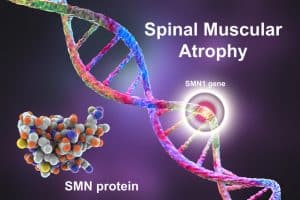
NICE under increased pressure over conflicts of interest
pharmafile | October 22, 2014 | News story | Sales and Marketing | GPs, NHS, NICE, UK, baker, conflict, mccoll, wollaston
A group of influential doctors is calling on the government to tighten up NICE’s conflicts of interests policy.
In a letter to Dr Sarah Wollaston, the Conservative chairman of the health select committee, the signatories say NICE’s system of managing the conflicts of interest of its panels that issue draft guidance is ‘not fit for purpose’.
The letter written by nine doctors and academics, including Lord McColl (a Tory peer) and Kailash Chand the deputy chairman of the British Medical Association, has also questioned why in February NICE produced a much more liberal approach to prescribing statins.
Currently, doctors are meant to offer statins to the estimated seven million people who have a 20% chance of developing cardiovascular disease over 10 years, based on risk factors such as their age, sex, whether they smoke and their weight.
But NICE’s most recent draft guidance is now recommending that people with as low as a 10% risk should be offered the treatment, possibly increasing the number of people taking these drugs by five million.
The signatories claim that eight out of the 12 members of the NICE panel that produced the guidelines had ‘direct financial ties’ to the pharma firms that make the statins.
They write: “We believe the system of appointment to panels and the processes employed to manage conflicts of interest are not fit for purpose. Members of the panel in this case had relationships with organisations which could derive financial benefit from the conclusions that were drawn.”
Wollaston says the letter “raises important questions about conflicts of interest that the committee will want to consider”.
Professor Mark Baker, a senior NICE official, has described the concerns as ‘completely unjustified’ according to the Daily Telegraph, and insists that none of the panel members stood to gain financially from the guidance.
All of the links were formally registered with NICE and there is no suggestion of individual wrongdoing, he adds.
The watchdog also points out that the main reason for its decision to potentially expand the use of statins was because a number of patents – such as for Pfizer’s Lipitor – have recently ended, meaning it can recommend cheaper generic versions of these medicines to more people.
Second warning
This is the second such warning over NICE’s conflicts of interest arising from its updated statin guidance.
Writing an open letter to both ministers and to the chairman of NICE – Professor David Haslam – in June, senior British doctors argued that its new draft advice was overly reliant on industry-sponsored trials, which ‘grossly underestimate adverse effects’, that can include increasing the risk of type 2 diabetes.
The letter adds: “The benefits in a low-risk population do not justify putting approximately five million more people on drugs that will then have to be taken life-long.”
The nine signatories included Royal College of Physicians president Sir Richard Thompson, and former Royal College of GPs chairwoman Clare Gerada – as well as a number of cardiologists and leading academics.
Ben Adams
Related Content

Digital mental health technologies – a valuable tool in supporting people with depression and anxiety
The potential benefits of digital mental health technology for managing depression, anxiety and stress, together …

A community-first future: which pathways will get us there?
In the final Gateway to Local Adoption article of 2025, Visions4Health caught up with Julian …

The Pharma Files: with Dr Ewen Cameron, Chief Executive of West Suffolk NHS Foundation Trust
Pharmafile chats with Dr Ewen Cameron, Chief Executive of West Suffolk NHS Foundation Trust, about …





